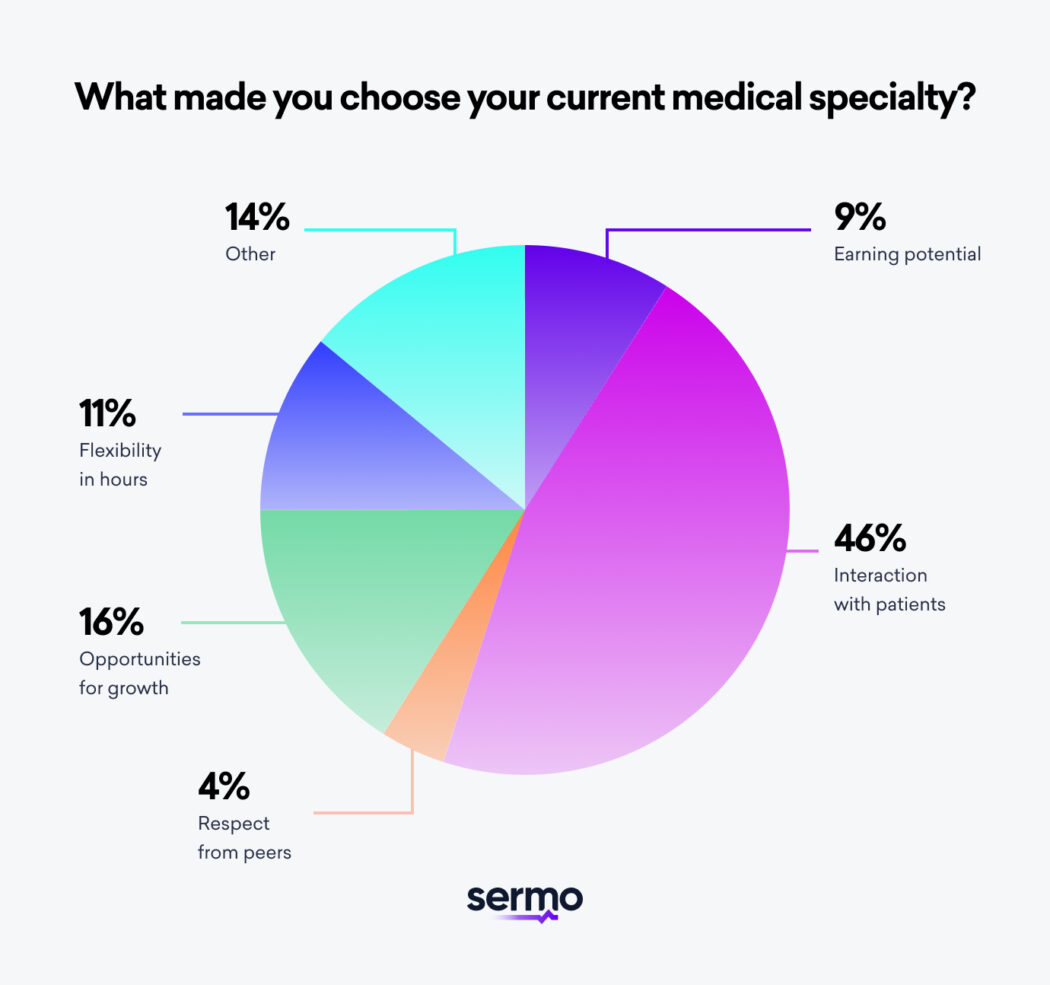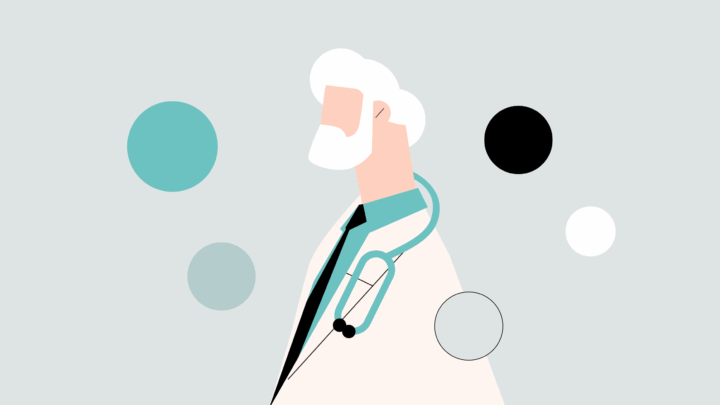
The best medical specialties for a physician depend on individual priorities, such as desired work-life balance, compensation, and level of patient interaction. Specialties like dermatology and psychiatry are often ranked highly for lifestyle and flexibility, while neurosurgery offers the highest compensation.
Considering a change in your medical specialty? You’re not alone in this. A Sermo survey of 1,500 physicians revealed that 35% have considered a change, and many have been able to do it successfully. With over 135 different medical fields, from obstetrics to pulmonology, there’s a path that aligns with your unique skills and preferences. Making a career change that transforms your life is entirely possible.

Can physicians change their medical specialty?
Yes, physicians can and frequently do change their medical specialty. A 2024 CHG Healthcare study found that 62% of physicians made a career change in the past two years, including switches between specialties and subspecialties.
Whether you’re exploring a new fellowship or a completely different specialty, it’s crucial to evaluate all factors. Adjusting to new routines takes time, so a thorough consideration of each option will help you make a confident decision.
To start, weigh what each potential specialty offers against your answers to these questions:
Patient Population: Which patient populations and clinical outcomes match your temperament?
Education: How do the training duration, intensity, and cost align with your goals?
Patient Care: Do you prefer direct or indirect patient care? What about patient continuity?
Non-Clinical Roles: Do you want to integrate research, advocacy, or other roles into your career?
Practice Setting: Which environment—hospital, private practice, academic—best suits you?
Clinical Interest: Which organ system do you find most interesting?
Work-Life Balance: What does your ideal work-life balance look like?

A list of top medical specialties ranked for 2026
Below is a list of medical specialties ranked by key factors like physician happiness, compensation, and administrative workload. Remember that these details can vary based on personal preferences and practice location. Here are some of the best doctor specialties to consider:

Which medical specialty has the highest compensation?
Neurosurgery offers the highest average compensation among medical specialties, with an average salary of around $750,000.
While salary is rarely the top factor for physicians, surgical specialties generally pay more than non-surgical ones. For example, Sermo’s 2024/2025 physician compensation report shows cardiologists earn an average of $460,000, and orthopedic surgeons earn $650,000.
However, higher compensation often comes with a reduced work-life balance, increased competition, and longer training periods. It’s important to consider all factors that influence your fulfillment alongside salary expectations, as all physicians earn high salaries regardless of specialty.
Which medical specialty reports the highest happiness?
Plastic surgery is the medical specialty with the happiest physicians, according to Medscape’s 2023 Physician Lifestyle and Happiness Report. This is likely due to plastic surgeons having more control over their schedules and working with patients who have elected to undergo procedures.
Beyond plastic surgery, other top specialties for physician happiness include:
- Preventative medicine (69%)
- Orthopedics (65%)
- Otolaryngology (65%)
- Urology (63%)
Conversely, the specialties with the lowest self-reported happiness levels are:
- Neurology (54%)
- Infectious disease (47%)
- Rheumatology (51%)
- Oncology (51%)

Which medical specialty involves the fewest administrative tasks?
Anesthesiology is the specialty with the least administrative burden, with physicians spending an average of 9 hours per week on these tasks.
High administrative demand is a major contributor to burnout and reduced career satisfaction. Physicians report that paperwork and other admin tasks reduce their capacity to deliver high-quality care. On average, physicians spend 15.5 hours weekly on administrative duties.
After anesthesiology, ophthalmologists (10 hours), dermatologists, radiologists, and plastic surgeons (all 11 hours) report the lowest administrative workloads.
What are the ROAD specialties for the best work-life balance?
The ROAD specialties—Radiology, Ophthalmology, Anesthesiology, and Dermatology—are widely recognized as the best lifestyle specialties in medicine. These fields typically offer more predictable schedules and fewer on-call hours.
Work-life balance can also be negotiated within individual contracts, even in specialties not known for being lifestyle-friendly. Provisions like protected administrative time, telehealth options, and reduced on-call duties can significantly improve work-life balance.
Which medical specialty is the most flexible?
Psychiatry is currently one of the most flexible medical specialties, largely due to the widespread adoption of telemedicine.
Flexibility is a key consideration, with 11% of physicians in a Sermo survey choosing their specialty based on it. While predictable hours are important, technology now plays a huge role. The telemedicine market is projected to grow from $83.23 billion in 2024 to $618.34 billion by 2033.
Over 80% of psychiatrists now offer telemedicine, often from home, because their work is more conversational than examination-based. This has made psychiatry a top choice for doctors seeking flexibility.
Which doctor specialty has the least patient contact?
Pathology, anesthesiology, and radiology are among the medical specialties with the least direct patient contact.
Nearly half (46%) of physicians surveyed by Sermo chose their career path based on their preferred level of patient interaction. Low-contact specialties often involve behind-the-scenes diagnostic or clinical support work.
Pathology is primarily a paraclinical field, meaning it rarely involves long-term doctor-patient relationships, making it an ideal choice for those who prefer indirect care.
Find your community of over 1 million physicians
Choosing the best medical specialty for you is a significant decision that may involve financial hurdles or lifestyle changes. Before you commit, it’s vital to research and learn from the experiences of physicians in the fields you’re considering.Sermo is the most trusted online community for doctors, where physicians from around the globe connect on the topics that matter most. Gain insights from your peers to make more informed career decisions. Become a Sermo member today and join the conversation.
Fields like dermatology and anesthesiology are often considered to have a good balance of high earning potential and a more manageable work-life balance compared to more demanding surgical specialties. However, all medical specialties require extensive education and rigorous training.
Specialties like psychiatry, family medicine, and internal medicine are consistently in high demand due to an aging population and a growing focus on mental and preventative health.
There are over 135 specialties and subspecialties in the medical field, offering a wide range of career paths for physicians to explore.















